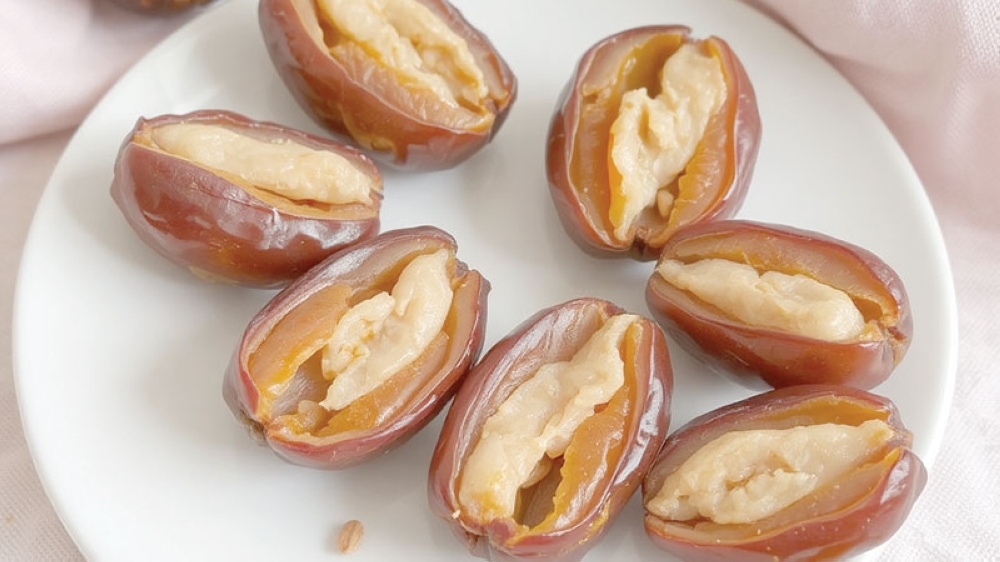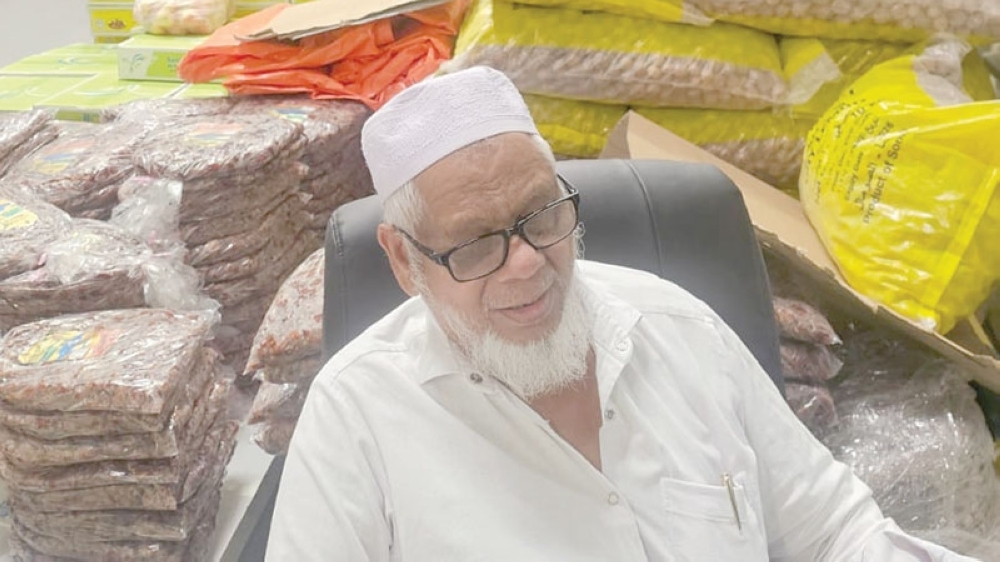

Dates—those enchanting fruits, cherished primarily in the Arab world, are bursting with remarkable medicinal benefits. They serve as a daily vitamin supplement and are especially popular during the holy month of Ramadhan.
Following the tradition of the Prophet Mohammed (May Peace Be Upon Him), who broke his fast with a simple dry date alongside friends, Muslims worldwide share this time-honoured practice when breaking their fast.
In essence, dates are nature’s treasure trove, filled with nutrients that promote robust health. They are particularly beneficial for maintaining strong bones, packed with copper, magnesium, selenium, and manganese, along with a good amount of calcium—making them excellent for the health of both bones and teeth.
Let us introduce you to Bappan Kutty Haji, a dedicated vendor of dates and date products for the past 28 years, starting his journey at the historic Mawaleh Central Fruits and Vegetable Market and now thriving at Silal Market in Barka.
Hailing from Areekkulam in Kerala's Malappuram district, Haji has established himself as a veritable authority on dates. When asked about different varieties, their nutritional content, and medicinal values, he becomes animated, effortlessly sharing his extensive knowledge.
“By demand, Khalas is the most popular variety of date in Oman. Other noteworthy types include Khaneeji, Battashi, and Kasab. Additionally, we enjoy varieties such as Lulu, Makhsili, Khudri, Safawi, Sagai, Mabroom, Ajwa, Fardh, Khalas, and Sukkari,” he shares, illuminating his expertise.

While Sagai and Khudri dates predominantly hail from Saudi Arabia and Qatar, the Safawi dates hold a special place in the hearts of Omanis. Makhsili is often transformed into dry dates in various Asian countries, where they are sun-dried to perfection.
Khaneeji dates are recognised for their sweetness, while Barni and Fardh are milder options suitable for those with diabetes. Other imported varieties such as Sakkai, Sagai, and the medicinal Ajwa also grace our markets, alongside the larger Majdool and Iran's Zahidi, each adding unique flavour to the local scene.
“The date industry in Oman is flourishing, not only catering to local palates but also exporting to countries like India. However, local production is currently insufficient, and it’s crucial that farmers receive the support needed to focus on date cultivation; we must also attract the younger generation to this vital agricultural pursuit. The government's initiative, the One Million Date Programme, promises to significantly bolster date farming,” Haji explains, recounting his journey from the Seeb market to his present venture at Silal market.
He emphasises the myriad medicinal properties that dates offer, advocating for their daily consumption to reap substantial health benefits.
“If you suffer from colds or allergies, incorporating dates into your daily diet can enhance your immune system, helping ward off such ailments. They aid in controlling cholesterol levels, supporting weight loss, and even regulating melanin production in the skin, providing anti-ageing benefits. Truly, the medicinal virtues of dates are boundless,” Haji concludes, proudly representing his Omani brand, Assafa Dates, which is well-regarded in the market.
Oman Observer is now on the WhatsApp channel. Click here



